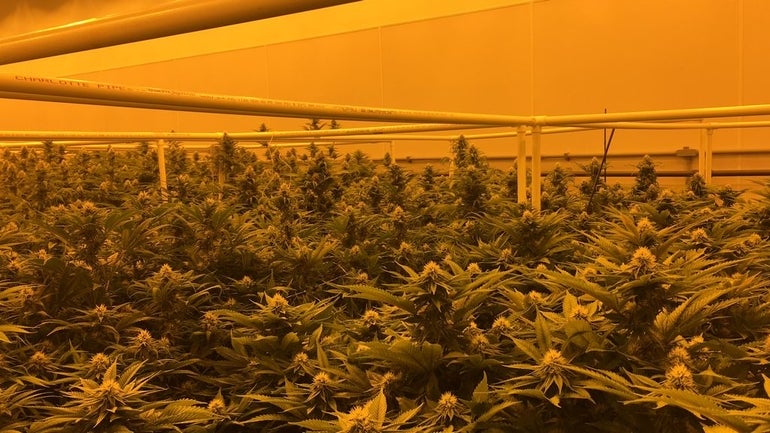Working off a slew of legal requirements and a series of near-term deadlines, the Cannabis Control Commission on Monday pulled together almost 30 organizations to find out what stakeholders want to see in the rules that will govern the newly legal marijuana industry.
The legal marijuana law passed by voters and altered by the Legislature spells out at least 40 areas which the CCC is directed to address with “regulations, guidelines and protocols.” The bulk of the regulations, the ones which must be in place in order for the CCC to issue licenses, must be promulgated no later than March 15.
Among the topics the CCC must cover are: the method and form of application for a marijuana license, a schedule of fees related to the application and licensing process, qualifications for licensure and minimum standards for employment, requirements for record keeping and tracking marijuana, minimum security and insurance standards, health and safety standards, and agricultural standards.
Peter Bernard, president of the Massachusetts Grower Advocacy Council, asked the CCC to draft regulations that will help facilitate a craft cannabis cooperative cultivation model that he said will help snuff out the black market. Cannabis cultivation cooperatives — which are allowed by law — could ensure that the high-quality cannabis favored by regular smokers is available for legal and taxed sale, he said.
“If we have nothing but the Pabst Blue Ribbon of cannabis out there from the big commercial industries there will be no Guinness, there will be no Dom Pérignon,” Bernard said. “Now the tourists will come here and buy whatever we sell them because they’re coming from a place where cannabis is illegal and it’s a novelty … The commonwealth is counting on tax revenue from people who smoke on a regular basis, those people are not going to settle for that commercially-grown product.”
In Colorado, Bernard said one gram of medical-grade cannabis cost $25 when marijuana first became legal in 2014 and by the end of 2016 had dropped to $8 or $9, in part because there were craft cultivators providing additional supply into the marketplace.
Neill Franklin, executive director of the Law Enforcement Action Partnership, pressed the CCC to give attention to the requirement that it issue regulations to promote and encourage participation among communities disproportionately affected by the War on Drugs and marijuana prohibition.
“You really have to make these opportunities available for people, people who live in communities that have been devastated — the high arrest rates, people being incarcerated — that means you have to make a way for those who have been criminally sanctioned and you have to make a way for economic justice,” Franklin said.
Without the opportunity to legally become part of the marijuana industry, people who have a criminal record for marijuana-related offenses could instead choose to operate on the black market, Franklin said.
“If you really want to shrink the illicit market and all the harms that come with that illicit market in our communities, you’ve got to make the economic opportunities available for people,” he said.
The Massachusetts chapter of the American Civil Liberties Union also urged the CCC to pay extra attention to its regulations intended to encourage industry participation among communities disproportionately impacted by marijuana prohibition and to give extra weight to license applications that would ensure diversity in the industry.
Also on the CCC’s list of required regulations are rules for things like the disposal of “excess, contaminated, adulterated or deteriorated marijuana,” how state regulators can prohibit the sale of a marijuana product if it is “found especially appealing to persons under 21,” and how a marijuana product manufacturer can voluntarily submit a product and its packaging to the CCC for review to determine if it would appeal to young people.
The CCC will also have to figure out how to accommodate Martha’s Vineyard and Nantucket — islands that can only be reached by passing through air or water that is federally regulated — without running afoul of federal marijuana prohibition. Those special regulations must be promulgated by the CCC no later than May 1, 2018.
And the commission will also have to, essentially, teach people how to grow marijuana in their own homes. State law calls for the CCC to issue “advisory guidelines and best practices on the cultivating of marijuana within a person’s primary residence.” By law, adults are allowed to grow six marijuana plants in their home, or up to 12 plants if there are two or more adults living in the home.
Monday was the first in a series of listening sessions the CCC is scheduled to hold throughout the month of October to “hear from members of the public regarding the content of future proposed regulations regarding adult use of marijuana.” The CCC will hold public listening sessions this week in Holyoke, Barnstable and Roxbury.

